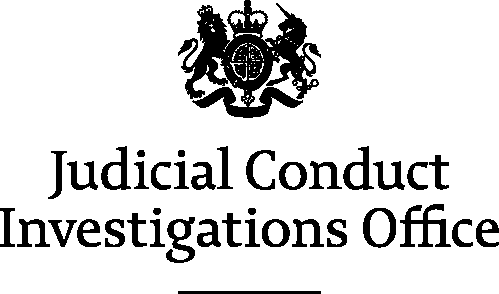




JCIO 06/25
Date: 28 April 2025
A spokesperson for the Judicial Conduct Investigations Office said:
Former magistrate Mr Anderson Jordan was subject to a disciplinary investigation following his failure, without a reasonable excuse, to complete the minimum annual sittings required of a magistrate. The Lord Chancellor and Lady Chief Justice have agreed that, had Mr Jordan not resigned before the conclusion of the investigation, he would have been removed from office for misconduct.
Facts
On appointment, magistrates sign an undertaking which includes a commitment to sit for at least 13 days (or 26 half days) a year, and to regularly access their judicial email account and rota.
In 2024, Mr Jordan was referred to the London Conduct Advisory Committee (LCAC) after he had failed to meet the minimum sitting requirements for 2023-24. This was despite the fact that, the previous year, he had been warned by the LCAC that he needed to improve his sittings. He had stated that he would do this and would contact his bench chair if difficulties arose.
Mr Jordan’s representations
Mr Jordan accepted that he had not completed the minimum sittings required and apologised. He cited personal difficulties which had caused him to cancel sittings and subsequently fail to make up for these. He expressed his desire to continue as a magistrate and said that his failure to meet the minimum requirements did not arise from any deliberate disregard for his obligations.
Disciplinary panel’s findings
The matter was considered by a nominated committee member of the LCAC, who recommended Mr Jordan’s removal from office. Mr Jordan exercised his discretion to request that the matter be considered by a disciplinary panel.
The disciplinary panel took oral evidence from Mr Jordan. The panel found that he had breached his undertaking by failing to meet the minimum sitting requirements, despite having been advised by the LCAC in the previous year that this could result in formal conduct proceedings in future. The panel noted that Mr Jordan had provided similar explanations of his difficulties for both years, and yet did not seek the support of, nor inform his bench chair of, his ongoing difficulties. He also had not accessed his judicial email account or rota frequently enough to comply with his undertaking.
In recommending Mr Jordan’s removal from office, the panel took into account that he was an experienced magistrate who understood the need to meet the minimum sitting requirements. The onus was on Mr Jordan to monitor his sittings and communicate any difficulties to his bench chair.
Decision
After Mr Jordan submitted his resignation, the Lord Chancellor and Lady Chief Justice exercised their discretion under regulation 22 of the Judicial Discipline (Prescribed Procedures) Regulations 2023 to continue to deal with the case. They agreed that Mr Jordan’s actions amounted to gross misconduct and that, had he not already resigned, he would have been removed from office.
Media queries in relation to the JCIO should be made in the first instance to the Judicial Press Office - telephone 020 7073 4852 or via email - press.enquiries@judiciary.gsi.gov.uk
Sanctions for misconduct by judicial office-holders are set out in the Constitutional Reform Act 2005. They are, in order of severity: formal advice, formal warning, reprimand and removal from office.
For more information about the Office, including details on how to make a complaint against a judicial office holder, you can visit the JCIO website at: Judicial Conduct Investigations website